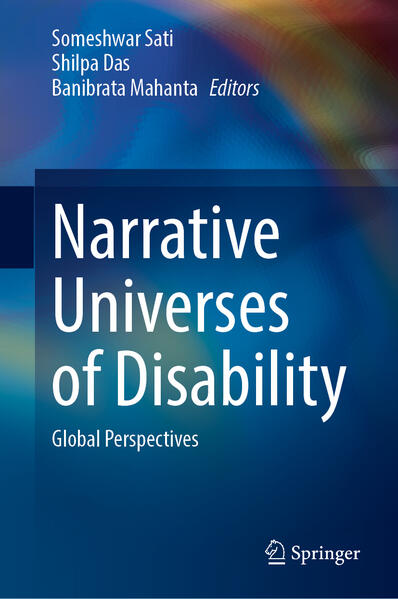
Zustellung: Fr, 09.05. - Do, 15.05.
Versand in 5 Wochen
VersandkostenfreiBestellen & in Filiale abholen:
This volume explores and critically examines how disability is communicated to and comprehended by individuals and societies, focussing on the shaping of these narratives within diverse disciplinary environments, and their interrelation with institutions like academia. It delves into the intersection between disability and several new areas of study, such as translation studies, citizenship, inclusive design and accessibility, thereby broadening the scope of the discipline of disability studies. The volume highlights how disability embodiment shapes narrative structure, and challenges deeply entrenched ableist stratifications, hegemonies and hierarchies that prevail in the humanities and social sciences. It examines the theoretical, methodological and ethical narratives of human embodiment and disability by bringing together papers from various parts of the globe, from multiple disciplinary perspectives, focusing on diverse time segments, and dealing with different kinds of disability. Read together, the contributions to this volume reevaluate how disabled body-minds have been historically devalued down the ages, suggesting new ways of understanding/re-thinking this oppression and marginalization. This anthology is a valuable resource for students and researchers in cultural and critical disability studies.
Inhaltsverzeichnis
Chapter 1: Mapping the Narrative Landscape of Disability: Ethnography, Identity, and Inclusion. - Section I: Ethnographic Accounts of Disability. - Chapter 2: Disabling Stories and Tales of Disability: Making Sense of Narratives in South India. - Chapter 3: Disability, Personal Narratives and Identity Formation: A Global South Perspective. - Chapter 4: Navigating Complex Realities: Everyday Experiences of Being Trans and Disabled. - Chapter 5: Re-engaging with the Aging Body: A Feminist Disability Perspective. - Section II: Negotiating Disability Identity in Literature. - Chapter 6: The Indian Short Story and its Discontent: Towards a More Affirmative Representation of Disability. - Chapter 7: Epistolary Embodiments: Lettering Narrative Universes of Blindness. - Chapter 8: Translating Disability: The First German Translation of Mary Shelley s Frankenstein, or, The Modern Prometheus. - Section III: Narratives of Inclusion in Education and Design. - Chapter 9: Not only physical: The socio-cultural elements of disability reflected through pedagogical case studies from India and Israel. - Chapter 10: Can disabled people s experiences of exclusion in pandemic higher education encourage the promotion of inclusive research practices? . - etc.
Produktdetails
Erscheinungsdatum
29. Mai 2025
Sprache
englisch
Seitenanzahl
312
Herausgegeben von
Someshwar Sati, Shilpa Das, Banibrata Mahanta
Verlag/Hersteller
Produktart
gebunden
Abbildungen
XIV, 312 p. 21 illus., 18 illus. in color.
ISBN
9789819633838
Bewertungen
0 Bewertungen
Es wurden noch keine Bewertungen abgegeben. Schreiben Sie die erste Bewertung zu "Narrative Universes of Disability" und helfen Sie damit anderen bei der Kaufentscheidung.








